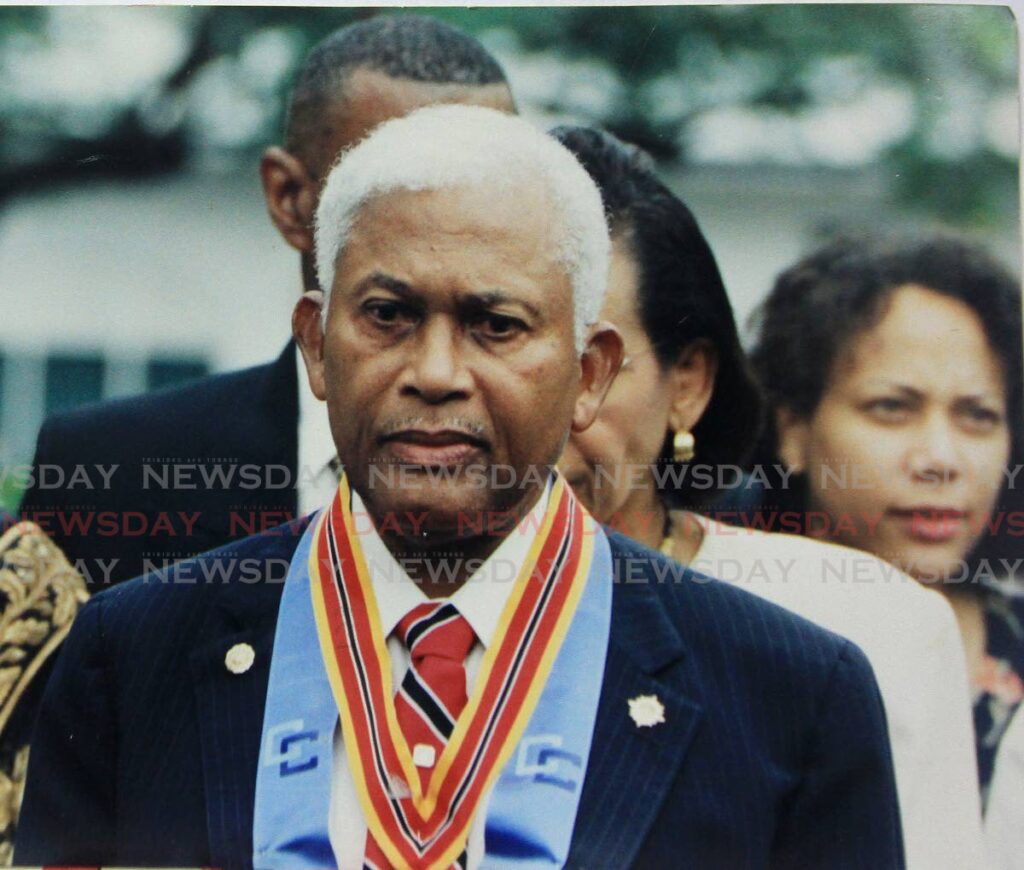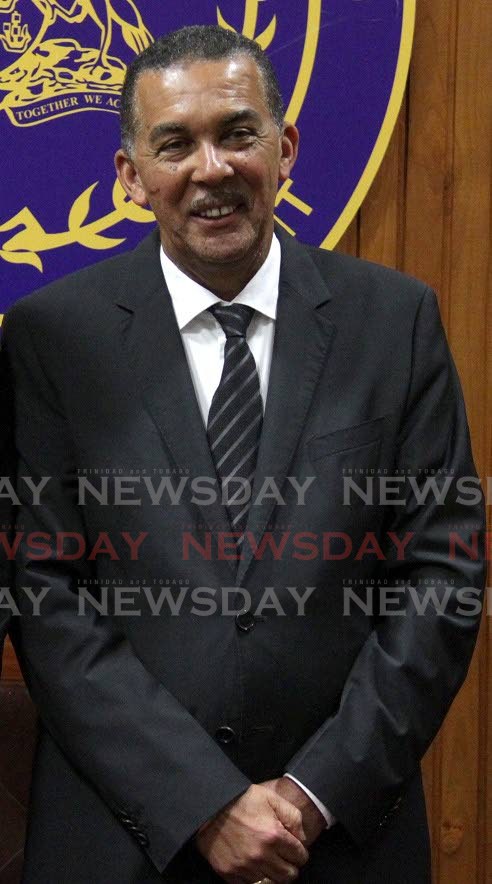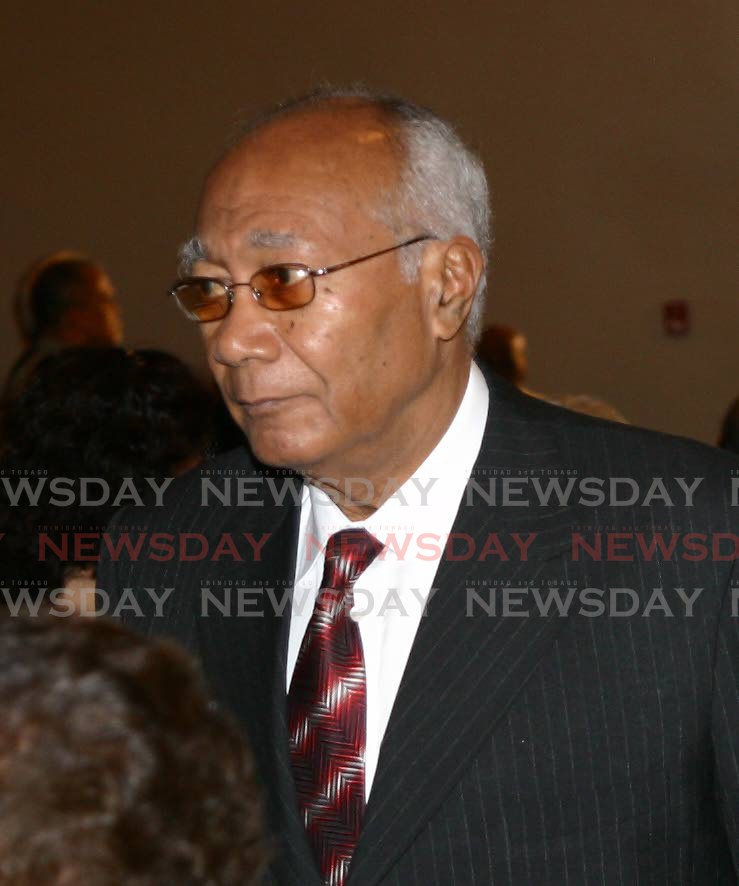Trinidad and Tobago's mixed history of presidential nominations

HAVE political parties over the years been either consistent or convenient in their attitudes towards nominating active politicians for the presidency?
A review of media reports and the Hansard record of Parliament may shed light on this question, in view of the Prime Minister's nomination of Senate President Christine Kangaloo, and Opposition Leader Kamla Persad-Bissessar's subsequent objection on the basis of being an active PNM member.
Arthur NR Robinson, Minister Extraordinaire in the Basdeo Panday government, was nominated as president and then elected by the Electoral College chaired by Hector McClean on February 14, 1997, amid complaints by the then PNM Opposition which put forward a rival nominee.
Robinson's election was considered by many to have been payback, to fulfil an alleged gentleman's agreement with Panday, in order for Robinson to hitch his two Tobago parliamentary seats to Panday in order to break the 1995 general election tie and make Panday prime minister, rather than the then PNM leader Patrick Manning.

Anthony Carmona was unanimously elected unopposed as President on February 15, 2013, by the Electoral College, backed by both the Kamla Persad-Bissessar government and the Keith Rowley-led Opposition, as a consensus candidate.
However, before that, the Opposition PNM suggested Caribbean Court of Justice (CCJ) judge Rolston Nelson, as "a person for consideration" in any "consensus talks" between the government and opposition.
Informal reports were of other strong contenders on the government side being Justice Sat Sharma, Justice Zainool Hosein, then Speaker Wade Mark, political analyst Dr Hamid Ghany, Chief Justice Ivor Archie and former head of the Public Service, Reginald Dumas.
The then Opposition chief whip Marlene Mc Donald had said Nelson was not tainted with politics but was well-respected and could withstand the stress of scrutiny.
"We have reiterated the position that we will not support any sitting parliamentarian and that we would like to have consensus-building in filling the highest post in the land," McDonald is reported as saying.
Rowley had then remarked, "We believe that the government is waiting for last minute in the height of Carnival to name its candidate, and we strongly believe that they are poised to make a wrong and unacceptable position once again."
At the Electoral College of Friday, February 14, 2013, Carmona was elected after his nomination form was signed by 12 government MPS led by Persad-Bissessar as then PM.
Persad-Bissessar had said the President's office was "the beacon of our collective endeavour to achieve our own unique place in this world."
She said, "In keeping with the tenets of our Constitution and our commitment to maintain our sacred democracy, we have, with unanimous national commitment, elected our new President."
Robinson's election as President on February 14, 1997, was by a divided Electoral College.
His nomination form was signed by 12 UNC government MPs led by Ramesh Maharaj and including Persad-Bissessar.
The PNM backed a rival nominee, Justice Anthony Lucky, whose nomination form was signed by 12 MPs led by then opposition leader Patrick Manning. Robinson got 46 votes to Lucky's 18, with one vote rejected.
Speaking for the PNM at that Electoral College, the then Diego Martin Central MP Kenneth Valley said a President appoints independent senators and independent commissions and must exercise this authority "conscientiously, impartially, and free from any political influence."
He said the PNM believes a President must have "integrity, strength of character, intelligence, patriotism, objectivity, and non-partisanship."
Fast-forward to the present time when PM Dr Rowley is facing heat and condemnation for his choice of Senate President Christine Kangaloo as the next President.
People opposed to Kangaloo are basing their arguments on the very views of MP Valley in that the President appoints independent senators and independent commissions and as such must exercise this authority, "conscientiously, impartially and free from any political influence."
John Humphrey, of the then UNC government, at the Electoral College extolled Robinson's attributes, in his academic, legal and political careers, but did not reference any question of partisanship in his nomination.
The issue of party-linked nominations for President also arose in 2003.

While the Manning government nominated former UWI principal and engineer George Maxwell Richards, the Panday-led opposition nominated Ganace Ramdial, former Senate President who had taken office under Panday and served from 1995-2002.
Manning as PM, nominated Richards as fair-minded.
"He has the experience, wisdom, integrity and impartiality that are required of the President of our Republic.
"He is a firm believer in democracy as the best form of governance and, as President of the Republic, he is certain to be a guardian of the Republic and our democratic way of life," Manning said.
Panday as opposition leader referenced Ramdial's "impeccable moral rectitude and unimpeachable integrity."
Panday said, "The nation applauded his display of total impartiality when, during a debate in the Senate, there was an equality of votes between the Government on the one hand and the Opposition and Independent Senators on the other.
"Mr Ramdial, as presiding officer, had no hesitation in acting in accordance with the parliamentary convention that required a presiding officer to use his casting vote to maintain the status quo. Mr Ramdial promptly voted against the Government."
In 2008 Richards was re-elected unopposed.


Comments
"Trinidad and Tobago’s mixed history of presidential nominations"